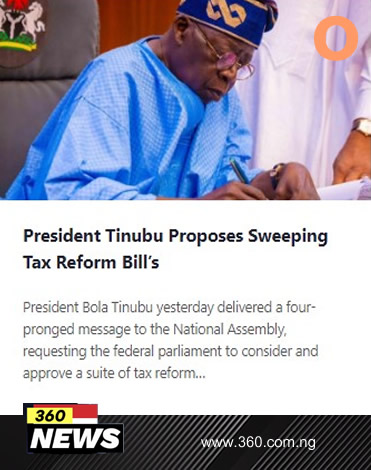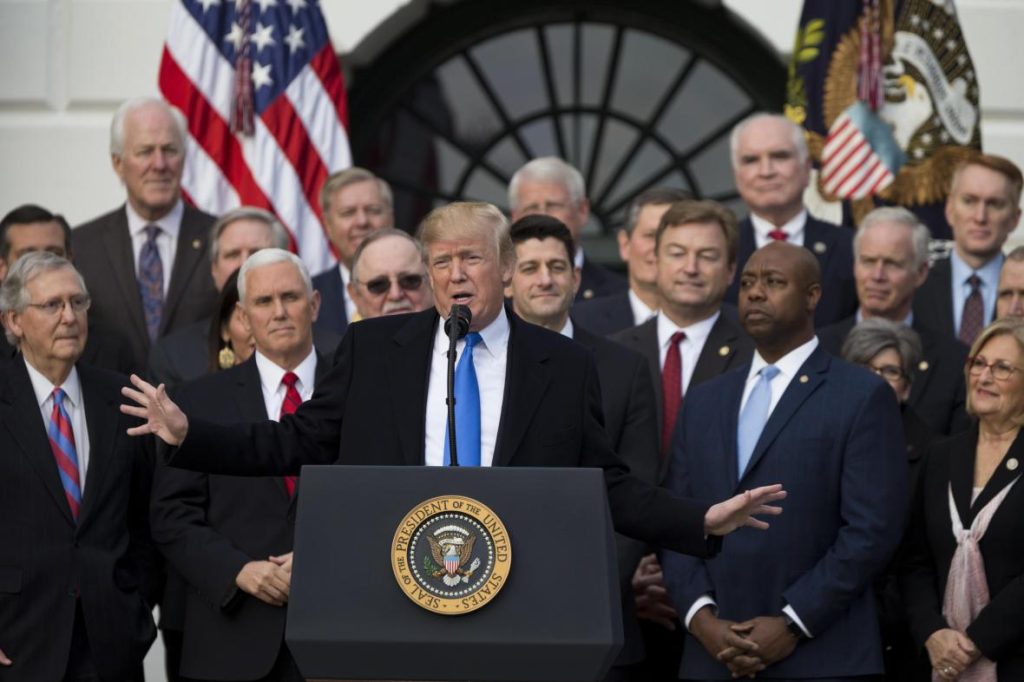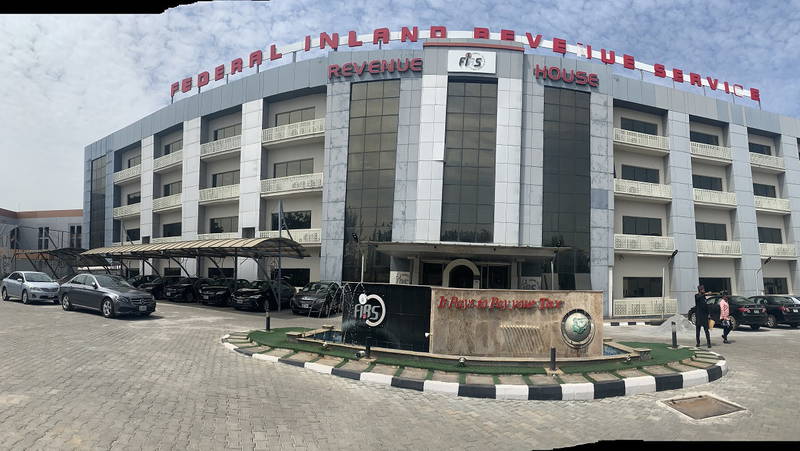President Tinubu Proposes Sweeping Tax Reform Bill’s

President Bola Tinubu yesterday delivered a four-pronged message to the National Assembly, requesting the federal parliament to consider and approve a suite of tax reform bills.
These proposed legislation, read by Senate President Godswill Akpabio, include “The Nigeria Revenue Service (Establishment) Bill,” which aims to overhaul the Federal Inland Revenue Service (FIRS) and transform it into the Nigeria Revenue Service (NRS).
Another proposed bill, titled “The Nigeria Tax Bill,” aims to consolidate and streamline the country’s fiscal framework for taxation.
The suite of tax reform bills submitted by Tinubu also includes “The Nigeria Tax Administration Bill,” which aims to simplify and harmonize the tax administration process, facilitating ease of compliance and dispute resolution, and “The Joint Revenue Board (Establishment) Bill,” which proposes the creation of a Joint Revenue Board, Tax Appeal Tribunal, and Office of the Tax Ombudsman to streamline revenue administration in Nigeria.
In his letter to the National Assembly, Tinubu expressed confidence that the bills, when passed, will spur economic growth by incentivizing investment, consumer spending, and transparency in the fiscal regime.
President Tinubu’s move to submit these tax reform bills to the National Assembly signifies a bold step towards modernizing and streamlining the taxation system in Nigeria.
If passed into law, these bills could potentially have far-reaching implications for businesses, investors, and consumers alike, encouraging greater transparency, efficiency, and predictability in tax administration.
However, it remains to be seen whether the bills will garner sufficient support from lawmakers and other key stakeholders, given the complexity of the issues at hand and the potential implications for various sectors of the economy.
The proposed tax reform bills submitted by President Tinubu could signify a shift in the direction of fiscal policy in Nigeria, with a renewed focus on attracting investment, stimulating consumer spending, and promoting transparency and efficiency in tax administration.
This move could potentially set the stage for broader economic reforms, with the aim of boosting growth, creating jobs, and improving the standard of living for citizens across the country.
However, as with any significant policy change, the devil will be in the details, and careful consideration of the potential impacts, unintended consequences, and political realities will be crucial in determining the ultimate success or failure of these proposals.
While the potential benefits of these tax reform bills are apparent, it is also important to consider the challenges and obstacles that may lie ahead.
For instance, Nigeria’s tax system has historically faced issues of non-compliance, corruption, and inefficiencies, which could complicate the implementation of these reforms.
Additionally, navigating the complex political landscape, securing the necessary legislative support, and ensuring the effective enforcement of new policies will require careful political maneuvering and strategic communication on the part of the President and his administration.
References and Citations:
- PoliticNigeria – Breaking: Tinubu writes NASS, submits 4 tax Reforms bills
- TheNation – Breaking: Tinubu writes NASS submits four tax reform bills
- Thisdaylive – Tinubu writes national assembly presents four tax reform bills
Picture News







